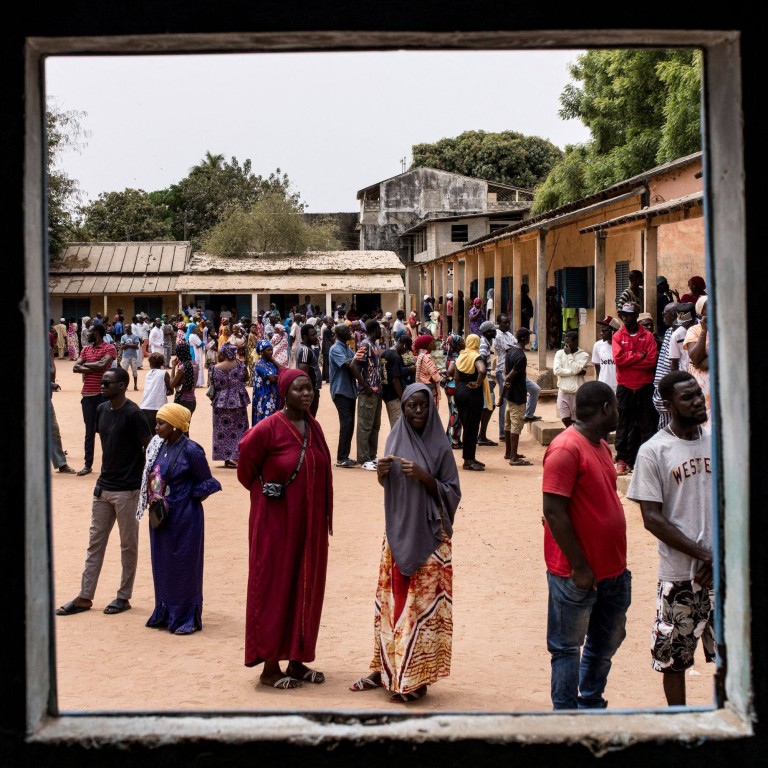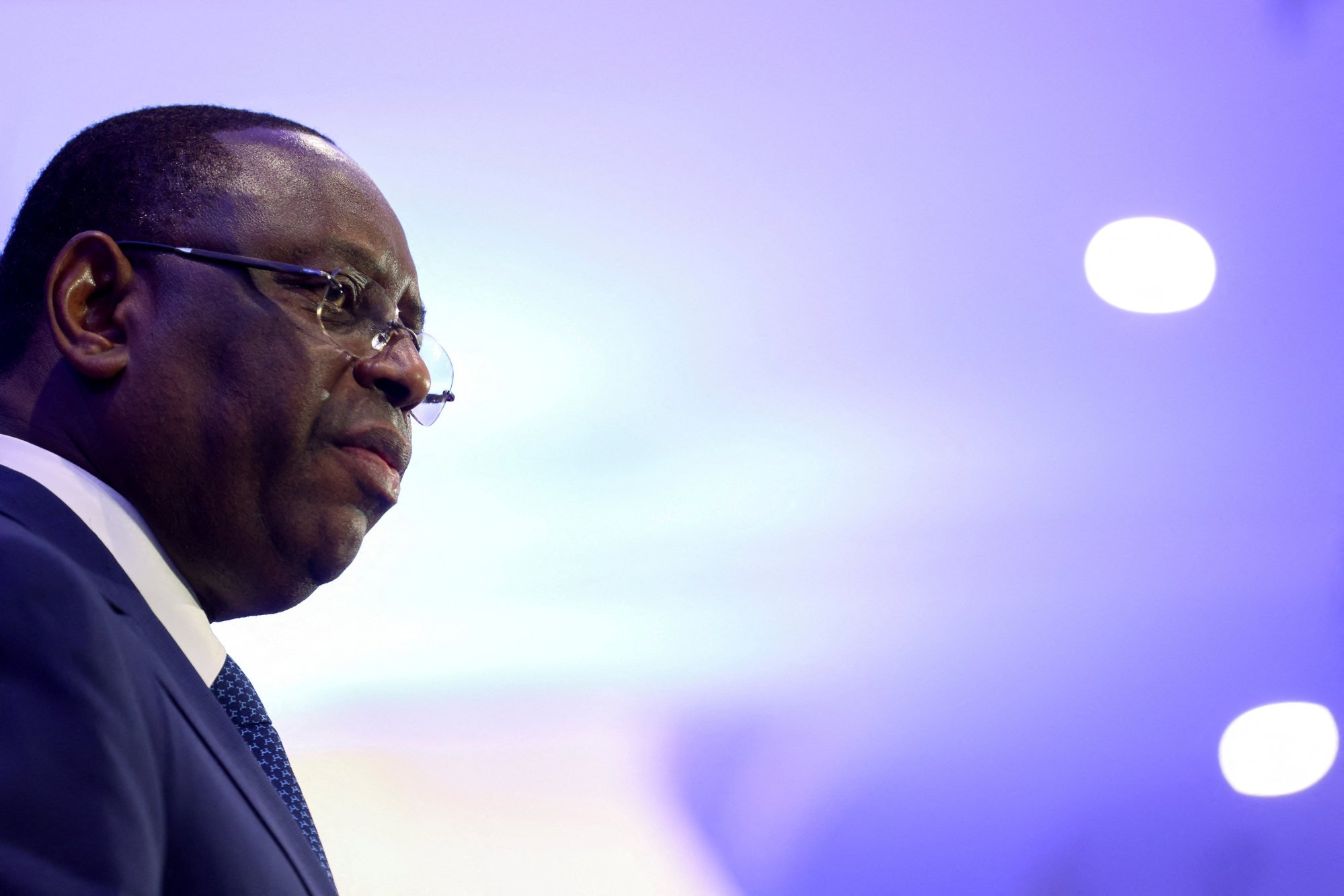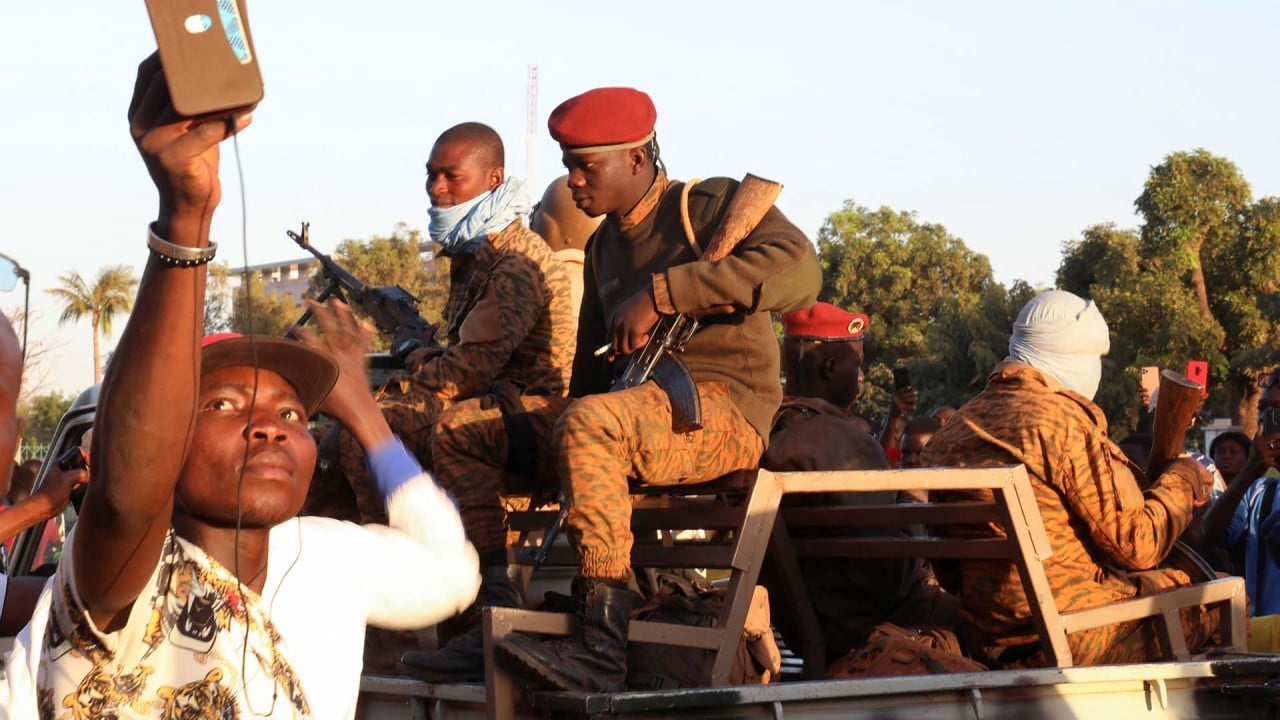
Senegal votes in tightly contested presidential race after months of unrest
- President Macky Sall is barred by the constitution from seeking a third term. The electoral process has been marred by violence, with many opposition protesters jailed
- Senegal has nevertheless stood apart in a region where the military has seized power from civilian governments in Mali, Niger and Burkina Faso
Senegalese lined up to vote on Sunday in a tightly contested presidential race following months of uncertainty and unrest that has tested the West African nation’s reputation as a stable democracy in a region shaken by a wave of coups in recent years.
The election comes after President Macky Sall unsuccessfully tried to postpone the February 25 vote until the end of the year, sparking violent protests. Sall is barred by the constitution from seeking a third term. As a result, the vote is taking place during Ramadan, the holy month when observant Muslims fast from dawn until dusk.
Lines formed outside polling stations around the capital Dakar. Roads were quiet as the nation’s elite police force was deployed across the city in armoured vehicles, checking voters’ cards. Official results are expected in the coming week, but in previous elections candidates have announced their predictions on the same evening as the vote.
Observers said turnout among the more than 7 million registered voters appeared to be high in the morning, although more precise figures would be available later Sunday. Babacar Gueye, who heads Senegal’s civil society network of observers, said participation was important to give the election legitimacy.
“At the opening of polling stations today, I have never in the past 15 years seen so many people going to vote,” he told Associated Press.

In the run-up to Sunday’s election, opposition leader Ousmane Sonko was released from prison last week, triggering jubilant celebrations on the streets of Dakar and renewed excitement about the contest.
Sonko was barred from running due to a prior conviction for defamation, and is backing his key ally Bassirou Diomaye Faye, who was also freed from prison last week.
Khodia Ndiayes, a 52 year-old cook, said she picked Faye on the ballot because she wanted Sonko to win.
“I’m proud to have voted,” she said. “We need a new president because life is expensive, the economy is bad and we need better schools.”
At the forefront of concerns for many Senegalese voters is the economy, which has been squeezed by high food and energy prices partly driven by the war in Ukraine.
Almost a third of Senegal’s youth are unemployed, according to the independent researcher Afrobarometer, driving thousands to risk their lives on dangerous journeys in search of jobs in the West.
“Young people have masters degrees but they’re selling coffee on the side of the street or are motorbike taxi drivers, there’s no work,” said Cheikh Omar Sy, 60, who works for an international development agency in Dakar.
Senegal has stood apart in a region where the military has seized power from civilian governments in Mali, Niger and Burkina Faso. The election is set to be the nation’s fourth democratic transfer of power since it gained independence from France in 1960.
Despite Senegal’s record, the electoral process over the past year has been marred by violence and unrest, and hundreds of opposition protesters have been jailed. There are 19 candidates in the race, including one woman, the highest number in the nation’s history.
Mame Diarra Juey, a 29-year-old administrator, said she was arrested at a protest after police found a bracelet that showed her membership in the now-dissolved party led by Sonko. She spent a month in prison and is still on provisional release.
Senegal President Macky Sall rules out re-election bid after violent unrest
“It really impacted me but I realised there is a huge need to change the system and the regime. Now I’m raising awareness in my community on the importance of voting,” she said.
Analysts say no candidate is expected to win more than 50 per cent of the vote, which means a run-off is likely.
Along with Faye, aspirants include Amadou Ba, a former prime minister, Khalifa Sall, a former mayor of Dakar unrelated to the president, and Idrissa Seck, a former prime minister from the early 2000s who was the runner up in the 2019 presidential race.
“The authorities had thought that young people wouldn’t vote, but there’s a strong presence. Women are also present. It’s going to be a resounding victory,” Sonko said on his YouTube channel, predicting a victory for Faye.
Two candidates dropped out last week to back Faye, a sign of the start of coalition-building that could determine the outcome of the race, according to analysts.
In Fatick, a town about 167km (104 miles) from the capital, queues of mostly women and elderly people formed on the sandy ground outside polling stations. The army was charged with securing the election outside the capital, and voters had their fingers stained with red ink to ensure no one votes more than once.
“I have done my duty and voted. I am proud to have voted,” said Fodé Ndour, 70, who walked with a cane.


